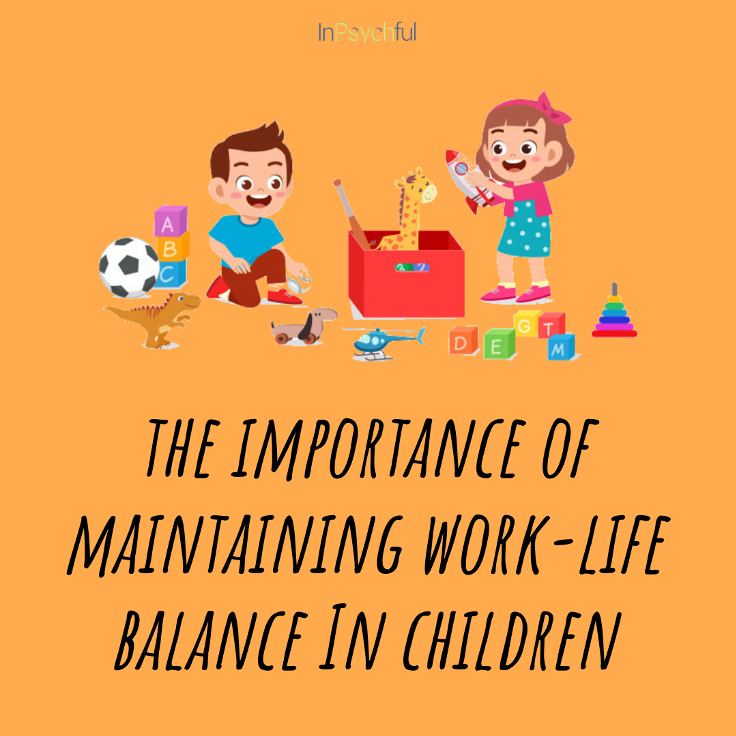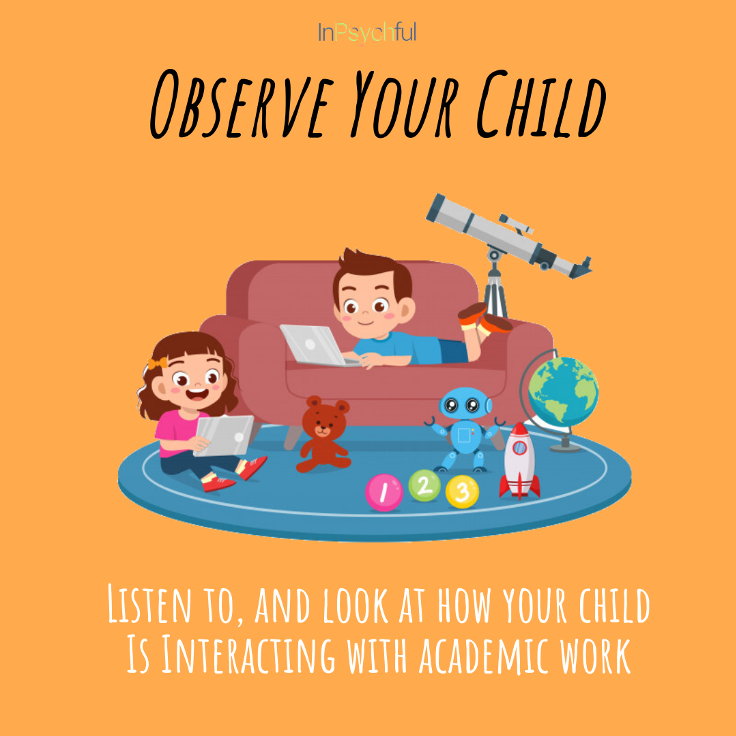“My Child Needs More Tuition!”
The Importance of Maintaining Work-Life Balance in Children
In an Asian society such as Singapore, it is very common for our competitive spirit to emerge. We want to be better than others, if not the best. In the context of academic endeavours, it seems that tuition plays a big part in making sure that children become even ‘better’. In Singapore, approximately 7 in 10 parents send their children for tuition lessons (Davie, 2016a)! It is thus the norm for children to attend tuition lessons and not ‘lose out’ to others.
Why Do Parents Think That Their Children Need More Tuition?
We are no stranger to the local concept of ‘Kiasuism’ (Pierson, 2019) and while it may have it perks, parents may sometimes fall victim to the negative aspects of this mentality. We all strive to be the best and also want the best for our children, thus getting caught in an educational arms race (Weale, 2018). Yet, we may be unsure of where is the limit to the benefits of being ‘kiasu’.
There are 3 main reasons why parents send their children for tuition lessons (Davie, 2016b):
- For children to improve on subjects that they are originally poor in
- For children to maintain their current grades in a subject
- For children to excel in subjects that they are already good at
When looking at these 3 reasons, we have to keep in mind that they all have different effects on the child, and may not always be beneficial for them. Sometimes tuition is essential to have a dedicated time for children to revise and practice their work. However, there are other times where we may not realise that children are being overloaded and deprived of opportunities to rest and recover (Tan, 2015), or do the things that they enjoy (Bray & Lykins, 2013).
Do Children Actually Need Tuition?
Just as adults require some form of work-life balance between their professional and personal lives, children need a balance between academic work and rest as well (Bray & Lykins, 2013). Sometimes, children do not necessarily require extra tuition, but parents may be wary of discontinuing tuition lessons for them.
What parents may not know is that most children have a strong intrinsic motivation to do well, and want to be seen by their parents as being capable and independent in their learning (LoBue, 2018). However, by sending them for extra tuition classes, parents may be implicitly telling their children that ‘I don’t trust you to do this on your own’ and ‘I think that you have to do more’.
How would it feel like at the end of your child? Children are likely to be burnt out with such tightly-packed schedules! With their daily energy levels needed to be spread across both school and tuition, children may start to feel increasingly tired, start to lack focus throughout the day, and also feel unmotivated in studying (Tan, 2015). They may also begin to develop a negative mindset towards studying, thinking that ‘no matter how well I do in school, I still have to go for tuition, so what’s the point of doing well?’.
What Parents Should Do
Observe Your Child
As parents, it may be more important to carefully discern whether your child really needs the tuition. Take the time to look, listen to, and observe the way your child is interacting with his or her schoolwork (Lim, 2018) – are there signs of your child lacking in the foundation? Are they easily stumped at questions and be unsure of where to even begin tackling them? Or are your children already doing well in their subjects and you are afraid that without tuition, they may fall behind?
It is very common for parents to think of many negative ‘What If’s (Hallowell, 2016) – ‘What if my child does less well without tuition?’ or ‘What if my child starts to fall behind?’. Then, what about the positives? What if my child thrives and excels with more time to rest now? What if they have more time to do work at their own pace and consolidate their learning in ways most beneficial for them?
By making a good judgment on the abilities of your child and what he or she may need help in (Lim, 2018), then determine whether engaging tuition lessons would be most beneficial for your child.
Support Your Child
Support from parents is also important in supplementing the child’s academic journey. By playing the role of the cheerleader (see last week’s article: https://inpsychful.sg/exams-parents-children-anxiety/), parents can modify their attitude towards their children by being more nurturing and less authoritative. You can start by checking in with your child and asking whether they can cope with the amount of work that they have, instead of requesting for more work to be piled onto them.
Parents can also start to be more involved with children (Lim, 2018) and work with your child instead of against them. When they have homework, do it with them, guide them through it patiently. When children need a break, moderate their break time and do some relaxing activities together – maybe watch a cartoon or two, or paint together. The essential idea is to make sure that you build trust and rapport with your child in order to work towards academic goals together.
Understand Your Child
Communication is important between parents and children, as children may not easily understand or express their feelings (MedLine Plus, 2020). Your child may be stressed and not know how to tell you. Sometimes, they may be afraid of telling you that they are tired and want to stop going for tuition lessons. Thus, it is important that you take the first step to ask them how they are feeling and what they want (Peng, 2016). Are they feeling burnt out? Or do they feel like they want the extra push? It is critical that parents be in tune with their children’s needs, and for parent and child to align their academic goals with each other and work in a common direction.
Parents should look at their child for who they are and not let the perception of an ‘ideal child’ cloud any judgments or decisions made (Yong, 2018). Instead of thinking about the need to raise a perfect child who gets the best grades and is the smartest kid in class, it is more important to embrace both abilities and flaws of your child. Then, from there, parents can begin to provide children with the help that they need to supplement their academic journey and ultimately, their holistic development. At the end of the day, there is more to a child’s achievement than just their academic grades – there should still be room left for children to make use of their childhood to explore their interests, develop their soft skills, play some sports and make new friends (Peng, 2016).
Camellia Wong (MA), Kam Wing Shan
References
Bray, M., & Lykins, C. (2013). Book Review of “Shadow Education: Private Supplementary Tutoring and Its Implications for Policy Makers in Asia” by Mark Bray and Chad Lykins, Hong Kong: Asian Development Bank and University of Hong Kong, 2012. SSRN Electronic Journal, 9, 17–86. https://doi.org/10.2139/ssrn.2346599
Davie, S. (2016a, January 19). 7 in 10 parents send their children for tuition: ST poll. The Straits Times. https://www.straitstimes.com/singapore/education/7-in-10-parents-send-their-children-for-tuition-st-poll
Davie, S. (2016b, January 19). Tuition has become an educational arms race, Opinion News & Top. The Straits Times. https://www.straitstimes.com/opinion/tuition-has-become-an-educational-arms-race
Hallowell, E. H. (2016, June 9). Fighting Life’s “What Ifs.” Psychology Today. https://www.psychologytoday.com/sg/articles/199711/fighting-lifes-what-ifs
Lim, V. (2018, October 22). Does Your Child Really Need Tuition? School Plus. https://schoolplus.com.sg/shareable-article-14-does-your-child-really-need-tuition/
LoBue, V. (2018, June 4). Motivating Children Without Rewards. Psychology Today. https://www.psychologytoday.com/sg/blog/the-baby-scientist/201806/motivating-children-without-rewards
MedLine Plus. (2020). Stress in childhood. https://medlineplus.gov/ency/article/002059.htm
Peng, T. H. (2016, January 19). Is tuition necessary? No, but how long can we hold out?, Opinion News. The Straits Times. https://www.straitstimes.com/opinion/is-tuition-necessary-no-but-how-long-can-we-hold-out
Pierson, D. (2019, January 18). Singapore’s ‘kiasu’ culture makes FOMO look like child’s play. Los Angeles Times. https://www.latimes.com/world/asia/la-fg-singapore-kiasu-fomo-20190118-story.html
Tan, T. H. (2015, November). Is it time for a new approach to education in Singapore? [Slides]. The HEAD Foundation. https://www.headfoundation.org/papers/2015_4)_Is_It_Time_For_A_New_Approach_To_Education_In_Singapore.pdf
Weale, S. (2018, December 6). ‘An education arms race’: inside the ultra-competitive world of private tutoring. The Guardian. https://www.theguardian.com/education/2018/dec/05/an-education-arms-race-inside-the-ultra-competitive-world-of-private-tutoring#:%7E:text=School%20funding-,’An%20education%20arms%20race’%3A%20inside%20the%20ultra%2Dcompetitive,four%20to%20receive%20additional%20tuition.&text=The%20children%20sit%20at%20a,to%20begin%20their%20evening%20studies.
Yong, J. (2018, December 1). Commentary: What is lost when we spend more on tuition. CNA. https://www.channelnewsasia.com/news/commentary/singapore-parents-spend-on-tuition-education-which-subjects-10937980




